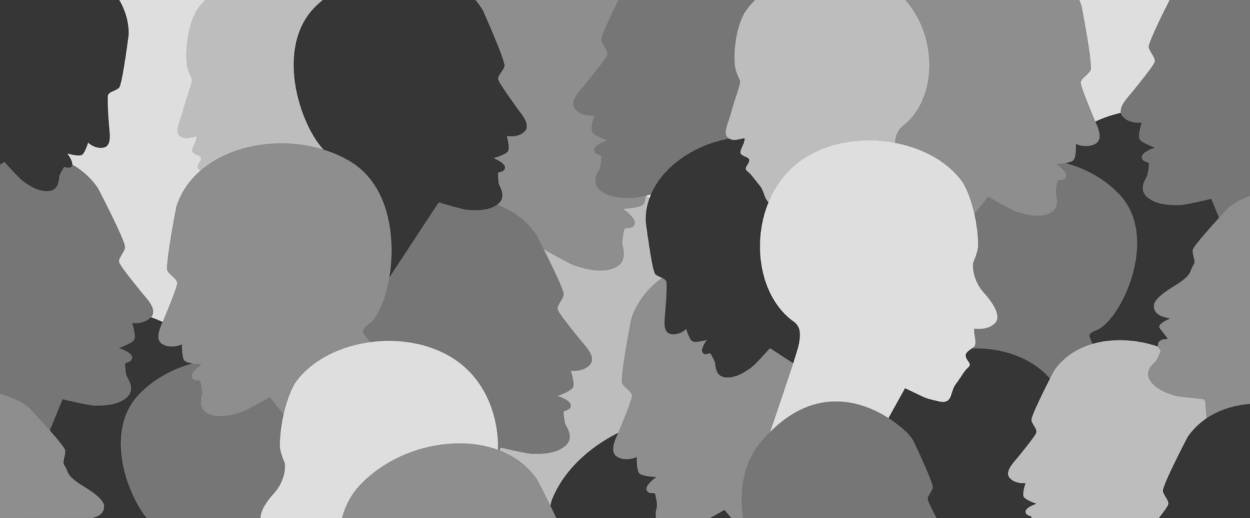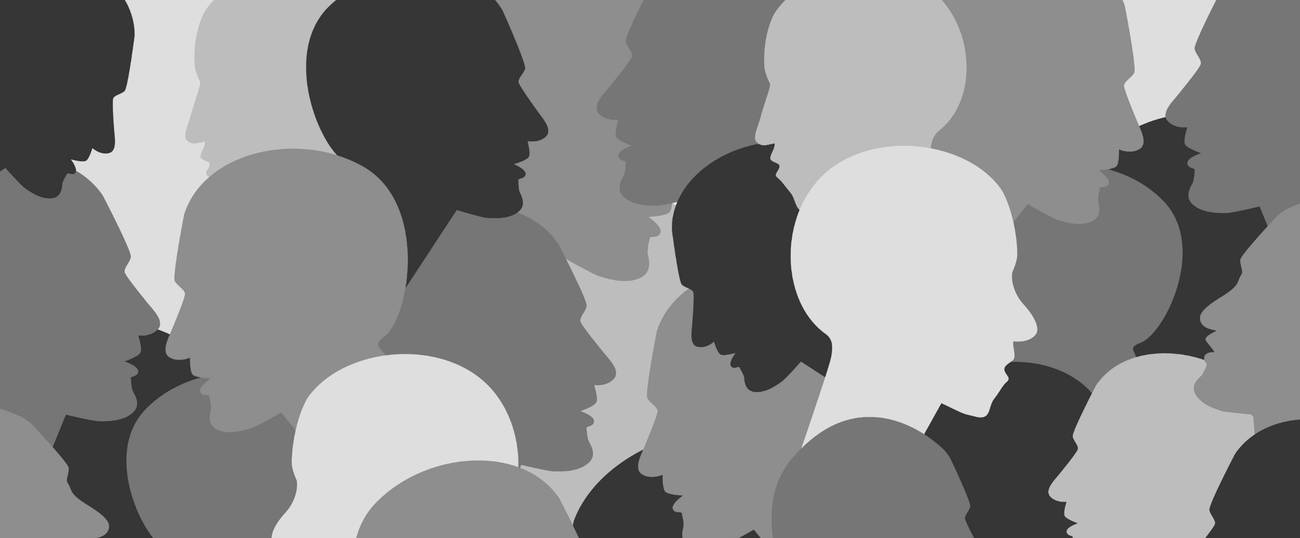How This Election, and My Research on Extremism, Underscored for Me the Need for Muslim-Jewish Dialogue
Anti-Muslim bigotry doesn’t occur in a vacuum, and as this election has vividly illustrated, the worldview that animates it ensnares others




Over the past week, my feelings have shifted from anger, to sadness, to anxiety, and now to determination. My emotional rollercoaster stems from this election’s collision with the multiple identities I embrace: I am the son of Jewish-Italian father and a Catholic Latina mother. I am also a Muslim by choice. (Yes, I still receive a lot of Jewish and Catholic guilt. No, I don’t get triple the holiday presents. That hasn’t happened since 2004 when Chanukah, Christmas, and Ramadan all coincided with each other.)
I am also a bridge-builder across the religious divide. Through my participation in the Muslim Leadership Initiative of the Shalom Hartman Institute, I have learned to critically but respectfully engage other communities and their narratives to forge enduring relationships that can be called upon in times of good and bad.
There is one more identity, beyond the ethnic and religious divide, that resonates with me as I continue to sort through my emotions. I am also an academic researcher whose work largely focuses on fighting bigotry, hatred, and extremism. In 2014, I co-authored a study on anti-Muslim bigotry in the United States with the Institute for Social Policy and Understanding, a Washington, D.C. think tank focused on American Muslim community development.
What I found was as relevant today as it was then.
In that study, “Manufacturing Bigotry,” my co-author Saeed Khan and I examined six areas of restrictive legislation that had disproportionate impact on various groups based upon race, ethnicity, sexual identity, gender, labor union membership, immigration status, and religion. Using bills in state legislatures as our measurement, we then did further research to see if their legislative sponsors and co-sponsors also went on to sponsor or co-sponsor other rights-restricting bills.
We wanted to answer an important pair of questions: Is anti-Muslim bigotry its own unique form of prejudice? Or is it interconnected with anxieties and animosities directed at other historically disenfranchised groups of people?
After examining over 1,600 pieces of passed and proposed legislation across 50 U.S. states, our evidence led us to conclude that anti-Muslim bigotry, as measured by anti-sharia and so-called “anti-foreign law” bills, was not a stand-alone issue. 80 percent of the 102 anti-Sharia and “anti-foreign law” bills we identified between 2011 and 2013 were sponsored or co-sponsored by legislators who also supported other rights-restricting bills. They included anti-immigrant ordinances and voter ID laws, which happen to disproportionately affect Latinos and African Americans.
However the greatest overlap we identified was between anti-sharia/”anti-foreign law” bills and “Right to Work” legislation, laws which have the effect of undermining a labor union’s ability to engage in collective bargaining. This is particularly damaging to historically disenfranchised minorities, as well as poor whites, who have relied on the organizing power of unions to seek economic empowerment and protection against discrimination in the workplace. Thus, if a lawmaker wants to support legislation that disempowers the greatest number of people at the same time, Right to Work laws would be consistent with that effort.
What does this all have to do with the recent election? Simply put, these findings show that everything we witnessed this past campaign was interconnected. The election was largely framed as a referendum on race and changing demographics that will lead to a non-white majority by 2043. The political rhetoric played on anxieties and animosities regarding women, African Americans, Muslims, Latinos, and toward the end of the race, Jews. (As my father is often fond of reminding me, whenever one group gets discriminated against, anti-Semitism is never far behind. As the comedian Chris Rock once put it, “That train is never late.”) In other words, Trump’s regressive policies and aggressive rhetoric were intricately linked.
Our study and the election results suggest two conclusions. First, the fight against anti-Muslim animus isn’t “a Muslim issue,” it’s an American issue that touches on many other crucial concerns. For Muslims and their allies, then, the fight against all forms of bigotry necessitates a “common values, common interests, and common solutions” narrative. Second, this shared narrative should promote a dual proactive strategy of (a) coalition building with organizations and communities sharing similar interests or values and (b) engagement with others we appear to disagree with.
This latter part of the strategy is especially important. Psycho-social research on racism and bigotry suggests naming and shaming individuals is ineffective and actually deepens an individual’s commitment to prejudiced views. Instead, long-term conversations that exercise empathy seem to suggest a more promising though time-consuming approach. If there is any hope of reducing the effectiveness of this past election’s exclusionary rhetoric, it starts here.
As such, while many Muslims and Jews will continue to disagree on issues such as Israel/Palestine, we can no longer afford to allow these differences prevent our communities from working with each other on common ground issues. The recognition of the importance of dialogue was one of the reasons I joined the Shalom Hartman Institute’s Muslim Leadership Initiative program in 2014. Today, leaders from both faith communities recognize this sense of urgency and recently celebrated a newly-formed Muslim-Jewish Advisory Council. This alliance is another constructive step that deserves long-term support, especially because the challenges ahead will not be going to be going away anytime soon.
Besides, as both the spiritual inheritors of Abraham and as fellow Americans, we’re family—whether we like it or not. And in times of prosperity and predicament, family always needs to stick together.
Previous: Trump’s Appointment of Stephen Bannon is a Call to Arms for American Jews and Muslims
Related: I Spent the Shabbat After Trump’s Election with Muslim Leaders from Across America
Alejandro Beutel is a researcher at the Institute for Social Policy and Understanding, a think tank specializing in the study and promotion of evidence-based development strategies for positive civic, social, and political engagement outcomes for American Muslim communities. He is also a fellow of the Shalom Hartman Center’s Muslim Leadership Initiative.